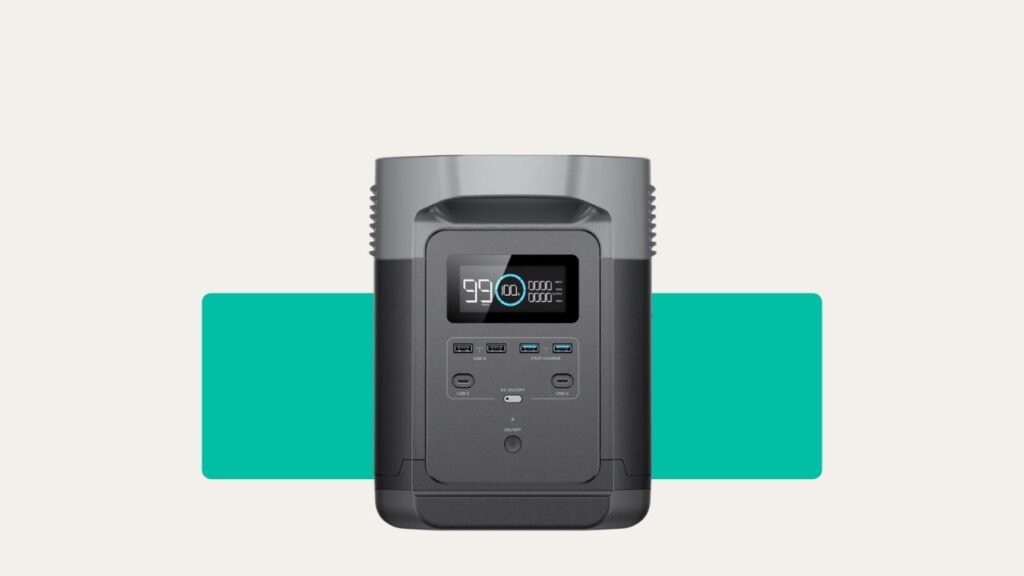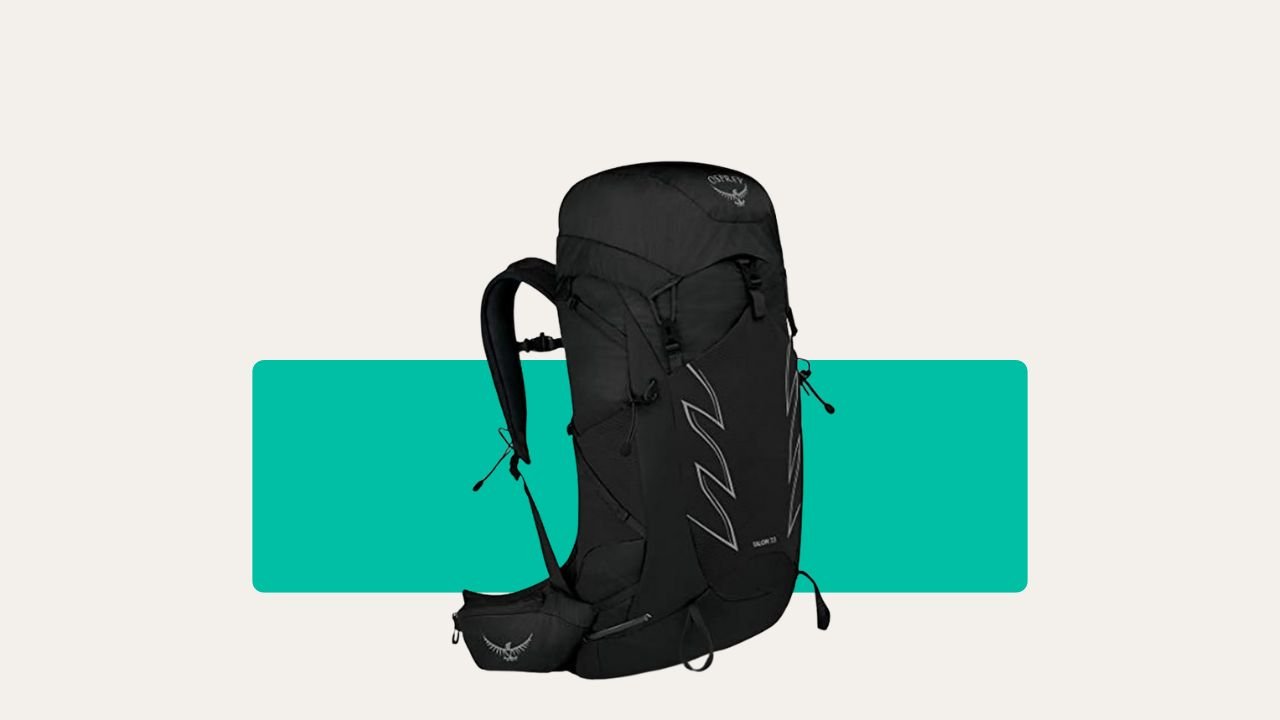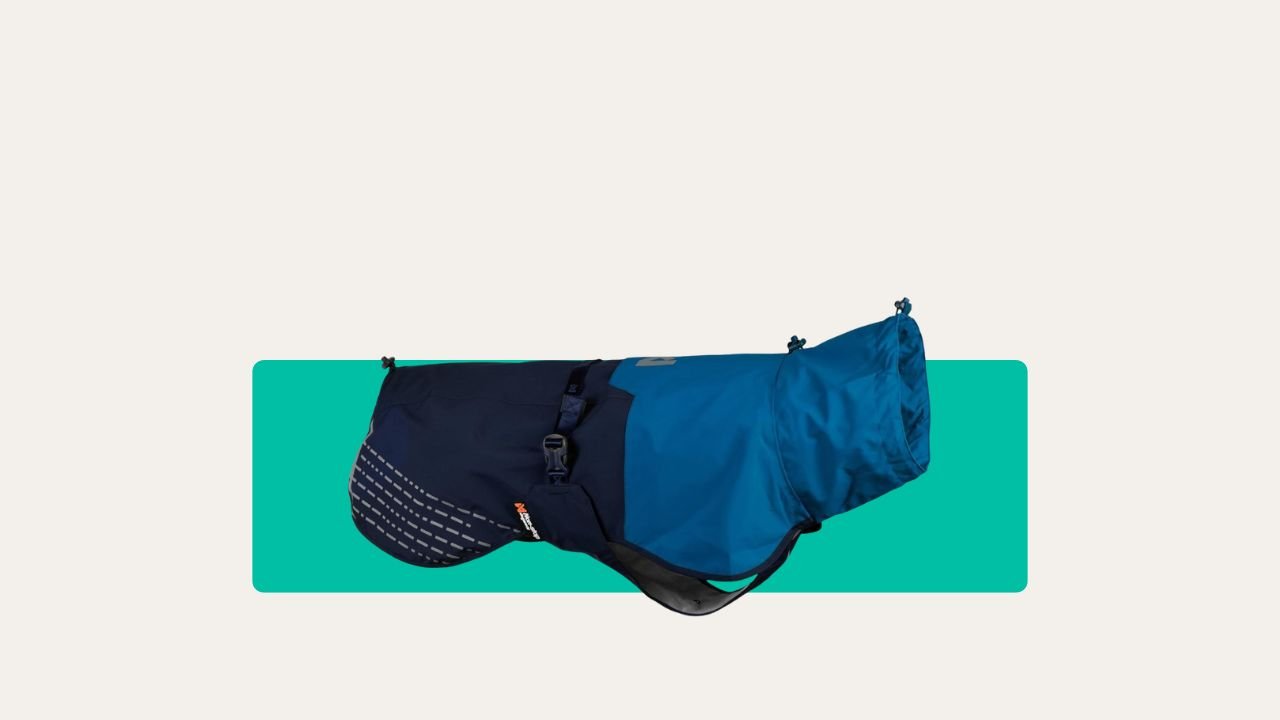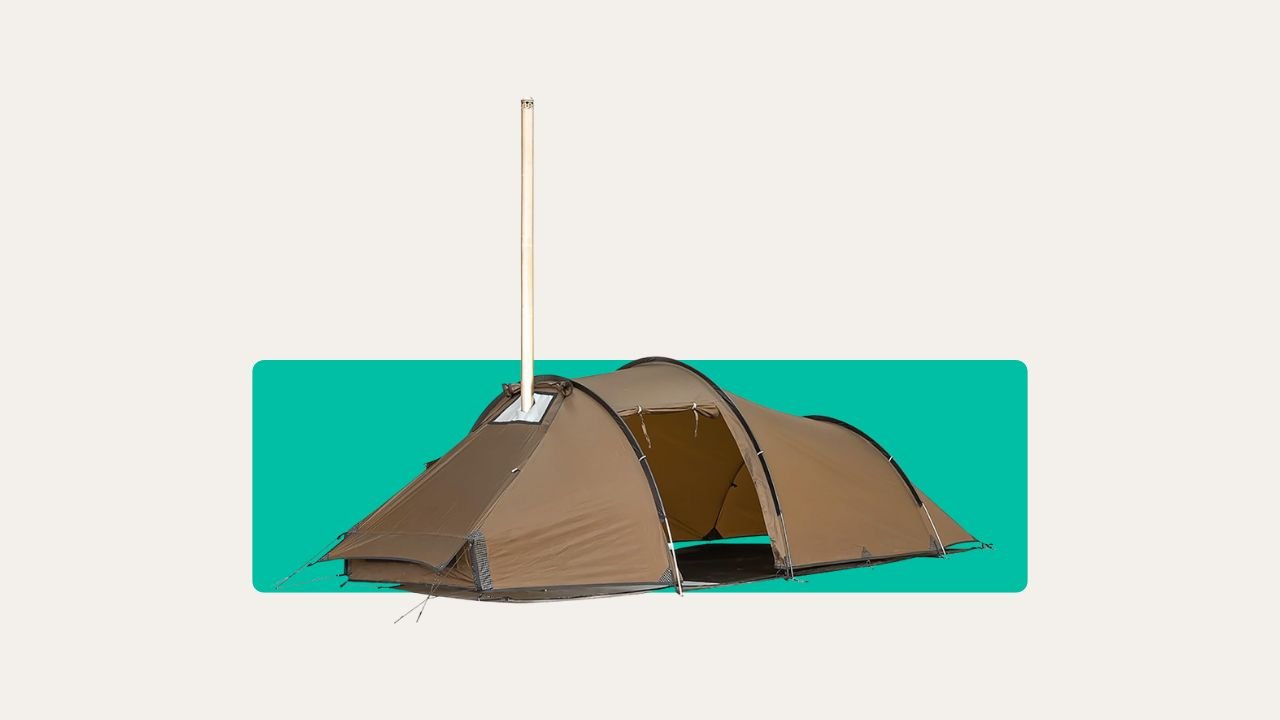Most campers think off-grid power means noisy petrol fumes, clunky leads, or wrestling with iffy campsite hook-ups that never quite work. I used to be one of them—until a stormy trip to Dartmoor trashed both my gas stove and my phone in one night. I swore I’d sort out proper power for next time. That’s where proper portable batteries like the EcoFlow Delta 1300 come in.
Let’s cut through the sales chat and see if the EcoFlow Delta 1300 really makes life easier for UK campers.
EcoFlow Delta 1300 at a Glance
The EcoFlow Delta 1300 isn’t a gadget for tech-heads dreaming of gadgets. It’s a beast of a portable power station that’s big enough to run real appliances, yet manageable for trips away. If you need serious wattage—think cool boxes, lights, coffee makers, recharging camera kit, or keeping tablets alive for bored kids—this one’s worth a look.
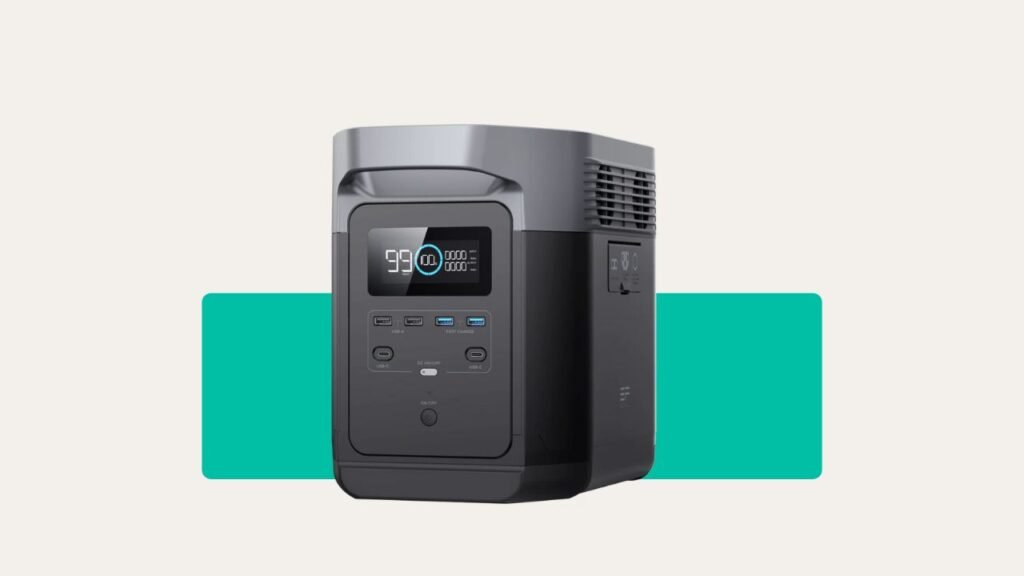
It’s best for campers who want something that just works, without dirty exhaust or stress. If you’re heading wild or off-grid, or just hate fussing with extension cords and site hook-ups, it’s a game changer.
Main Features and Power Specs
Right, the basics. The battery packs a huge 1260Wh (watt-hours), which is much more than most rivals at this price. That means it’ll run a 60W bulb for around 21 hours—helpful when British summer seems more like October.
You’ve got 6 AC sockets (like your home plug), 2 USB-C PD for your modern phones and laptops, and 4 standard USB ports—plus car charging and DC output. You can plug in thirteen bits of kit at once, but let’s be honest, in a tent that’s probably everything you’ve brought, including the lights and the neighbour’s phone.
The best bit? It goes from empty to 80% in about an hour (using a wall socket at home), and full-up in under two. That’s quicker than boiling a Billycan on a blustery Yorkshire hill.
Solar charging is an option, but it does take time—14 to 28 hours depending on sun and your panel setup. That might disappoint if you’re a solar purist, but for everyone else, the AC charging is a proper revelation.
It’s rated at 1800 watts steady, peaking at 3000W. In real life, that means kettles, fridges, microwaves and hairdryers—although running high-drain kit continually will flatten it pretty fast.
Looks, Build, and Carrying Ease
Picture a chunky desktop PC with handles—about 40cm by 21cm, and 27cm high. At 14kg, it’s not a featherweight, but you won’t bust your back shifting it from car boot to tent. The handles are solid, not the cheap sort that cut into your hand or crack after six months.
The casing feels bombproof, and I’ve plonked it on gravel, damp grass, even rearranged it round a muddy tent base when a storm rolled in. Ventilation is good—the fans kick in under heavy load but aren’t deafening. You get a big, easy-to-read LCD panel telling you charge left, what’s being used, and how long you’ve got—all in plain English, not hieroglyphics.
Packing up, it’s bulkier than a 500Wh unit but way more capable. They call it “portable” for a reason—it’s not for backpackers, but in the car or van it’s no trouble.
Battery Test: Using It While Camping
This is where the Delta 1300 earns its stripes. I’ve run weekend campouts, beach BBQs, and a rainy van trip through Wales, trying to trip it up.
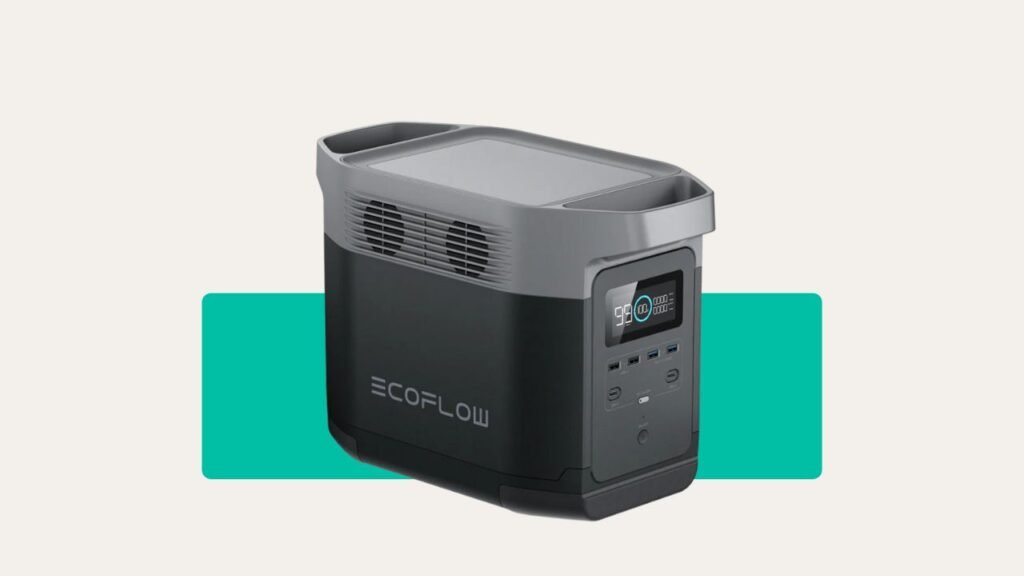
On a long weekend, I ran a Dometic cool box, topped up two laptops, torched through phone battery life, and even charged a mate’s e-bike battery—all with juice to spare Sunday evening. Used wisely, you can get three or four nights of “civilised” camping out of a single charge.
I’ve made coffee on a wet morning while sheltering in the awning. No worrying about gas leaks or soggy matches. Running an electric blanket or airbed pump works great too, though if you run a fan heater, don’t expect a full night’s use.
I once left it charging in the porch through a thunderstorm for a proper test—no issues. Only gripe is solar charging in British weather. Even with two 110W panels, charging is slow and patchy. Ideal for occasional topping up, but don’t rely on it for heavy daily use.
Real User Feedback: Good and Bad
Looking at what other campers and van dwellers say, fast AC charging is everyone’s favourite. Many rate it for power cuts at home too—keeping the WiFi and fridge alive.
The downsides? Some say it’s hefty for “ultralight” setups, but that’s the trade-off for big wattage. Several wish solar charging was quicker, particularly in British drizzle. A few found fan noise a tad much, but honestly, in a tent or awning it gets drowned out by wind and rain.
The reliability seems solid—most users note it handles knocks and damp fine, and they like the clear display.
Strengths and Weaknesses
Pros
- Extremely fast AC charging (0-80% in an hour—brilliant for last-minute trips)
- Big capacity—runs high-watt appliances without fuss
- Plugs for everything, including USB-C and 6x AC sockets
- No fumes, no maintenance—silent and safe indoors
- Solid, carry-friendly build
- Clear LCD display—easy to know what’s left
Cons
- Solar charging is slow (especially with typical UK sun)
- Bigger and heavier than Jackery 500/1000 or lower-wattage models
- On the pricey side—though you get what you pay for
- Not for hikers or pack-light campers
- Battery life varies wildly by appliance—fan heater? Not long
Comparing the Delta 1300 to Other Camping Batteries
Against the Jackery Explorer 1000, the Delta charges much faster (AC). The Jackery is lighter and simpler, but doesn’t match the Delta’s power or number of outlets.
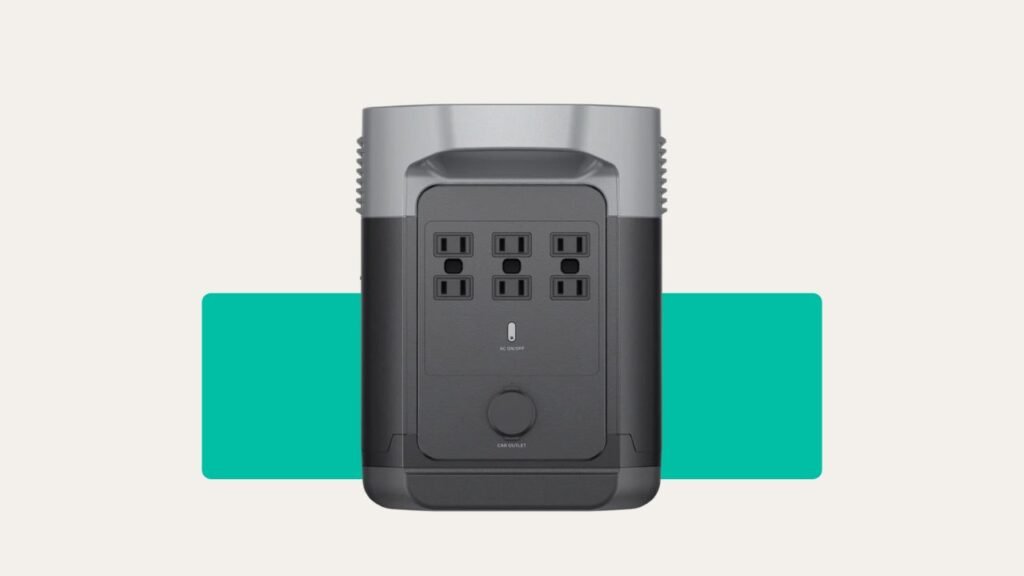
Up against the Goal Zero Yeti 1400, the Delta is lighter, friendlier, and charges at nearly double the speed via wall socket, which makes a real difference if you’re nipping home between wild camping stops. The Yeti 1400 relies on lead-acid tech (fewer cycles, heavier), while Delta gives you Lithium-ion goodness—faster, safer, more cycles (roughly 800 at full capacity).
The newer EcoFlow Delta 2 uses different battery chemistry (LiFePO4) and is worth a look if longevity trumps everything for you, but the Delta 1300 is still a hard unit to beat for power, speed, and convenience.
Who Should Buy the EcoFlow Delta 1300?
Go for this if:
- You do weekend (or longer) camping where electric hookups are rare or unreliable
- You’re running proper appliances—kettle, cooler, laptop, lights, films for the kids
- You need something fast to recharge on a busy schedule
- You want a clean, low-fuss alternative to a stinky old generator
- You hate running out of power in storms, wind, or during power cuts at home
Give it a miss if:
- You’re an ultralight backpacker (stick to power banks or small packs instead)
- You’re solar-only and don’t have mains to top up
- Your budget just can’t stretch (there are smaller options like the Jackery 500)
- You only use campsites with reliable mains power
Final Thoughts: The Verdict for Campers
In over fifteen years of camping—through Welsh winters, Essex heatwaves, wild Scottish bothies—good power has always meant comfort. The EcoFlow Delta 1300 isn’t perfect, but after a summer of using mine, I wouldn’t go back.
It’s hard to beat for sheer wattage, AC charging speed, and flexibility. True, you’ll notice the weight carrying it across a muddy field. And your wallet will notice, too. But once you run a pop-up camp with hot drinks, cold beers, and no battery anxiety, you’ll see why so many campers are switching.
If you need serious, no-nonsense power—something that will get you through storms, keep the family happy, and work hard for years—the EcoFlow Delta 1300 is money well spent. Camping is supposed to be about less stress and more good memories. This bit of kit helps make that happen.
And when you’re sitting with a hot cuppa, charging your phone during a monsoon, you’ll thank me.
Got questions or want advice on picking the right power pack for UK camping? Drop a comment—I’ve probably already made your mistake, and I’m happy to help you get it right.

